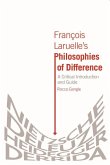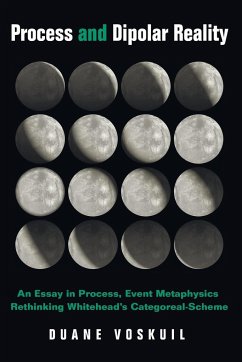'In this brilliant, insightful and hugely readable book James Williams draws on the work of Whitehead and Deleuze, amongst many others, to introduce a new way of thinking about signs. As multiplicities of intensive relations that are continually changing, signs are shown to have a life of their own that courses through us even before we set about using them or analysing their meaning. Williams has made a huge contribution to our understanding of how signs both support and disrupt our sense of the world.' David Webb, Staffordshire University 'Internationally renowned Deleuze specialist James Williams develops in this work his original philosophy of signs. A processual, clear and incisive inquiry, discussing analytical and structural formalism, ecological semiology and political issues. A great metaphysical achievement.' Anne Sauvagnargues, University Paris Ouest Nanterre La Défense (Paris 10) A new process philosophy of signs, where process becomes primary, and fixed relation secondary What is a sign? We usually think that it is a fixed relation, for instance, when a red light signifies 'Stop'. This book claims signs should instead be thought of as varying processes - Should I stop? Signs are occasions for creative responses rather than legitimate actions. James Williams develops this new process philosophy of signs through a formal model, in contrast to earlier structuralist definitions. He draws on the philosophies of Deleuze and Whitehead, criticises earlier work on the sign in biology by Jakob von Uexküll, and connects to contemporary work on process in the philosophy of biology by John Dupré. The process model has wide applications in the arts, humanities and social sciences, and informs their critical debates with science. In defining the sign as essentially political, this radical definition of the sign opens up new possibilities for social and political critique. James Williams is Honorary Professor of Philosophy and member of the Alfred Deakin Institute for Citizenship and Globalization at Deakin University. Cover image: (c) Bekah Mackenzie Cover design: [EUP logo] www.edinburghuniversitypress.com
Hinweis: Dieser Artikel kann nur an eine deutsche Lieferadresse ausgeliefert werden.
Hinweis: Dieser Artikel kann nur an eine deutsche Lieferadresse ausgeliefert werden.








